
Recently, a group of Ukrainian women leaders visited Kosovo as part of the project ‘TRENDS IN THE AREA OF WOMEN, PEACE AND SECURITY: THE CASE OF THE WESTERN BALKANS AND UKRAINE’.
This project aims to support women’s meaningful participation in post-war processes in Ukraine through networking, education and exchange of experience with women’s movements in countries that have overcome serious security challenges and are on the path to post-conflict recovery.
Co-founder and CEO of the Day After Foundation, Iryna Drobovych, who is also an expert on gender policy, women’s empowerment and political participation, spoke in an interview with The Geopost about the experience that Ukraine can learn from Kosovo in the post-war period.
Read the full interview here:
The Geopost: Good afternoon, Ms Irina. We are glad to welcome you in Pristina. Please tell us about your organisation.
Drobovych: Hello. Our organisation is called the Day After Foundation. We prepare Ukrainian women for the post-war settlement.
We do not advocate for peace at any cost, but we believe that it is never too early to prepare for peace. And we are currently organising study visits for Ukrainian women leaders to countries that have gone through wars or major upheavals. And we are currently on such a visit to the Balkans.
We have just returned from Bosnia and Herzegovina, where we were in Sarajevo, in the Tuzla region, in Srebrenica. And these days we are in Pristina studying the experience of Kosovo in the post-war settlement. We are a delegation of eight women leaders representing different organisations with different expertise from women’s political participation, women’s peacebuilding to mental health, war crimes documentation and community outreach in different regions of Ukraine.
The experience of Kosovo is interesting and important for us, in particular, and especially in terms of supporting people who have experienced wartime violence and wartime sexual violence. How to work with such an impressive group, how to help these people survive the terrible experiences they have faced in their lives. And how to make this support sustainable.
These are the issues that we studied here. And we will bring this experience and knowledge back to Ukraine. Unfortunately, we really need this knowledge now to help those vulnerable groups that we have at home.
The Geopost: And who have you already met, what have you seen, what have you learnt while in Kosovo?
Drobovych: Our partner during this visit is the Kosovo Centre for Gender Studies, ed. Actually, we had a number of meetings with them, learned about their research, their advocacy work here in Kosovo in support of the women’s movement and women’s leadership. We met with a centre that works with people who have been tortured during the war, and a centre that provides them with psychological and legal assistance (KRCT – Kosovo Rehabilitation Centre for Torture Victims, ed.)
We also met with the former President of Kosovo, Atifete Jahjaga, who is an example of political leadership and support for this society after the war. We also visited the Reporting House, and it was also an interesting experience for us to see how important it is to document crimes against humanity, how important it is to keep all the information about war crimes that take place during such great upheavals. This is our programme.
The Geopost: How will the experience of Kosovo help your work in Ukraine?
Drobovych: I’ll continue with what I haven’t actually finished yet. What is interesting here is the experience of documenting war crimes. The methodology of how to record and store information about human rights violations that occur during wars is something that we will also need.
The national mechanism of support for victims of wartime violence is also an example that may be of interest to us, because here the system is built at different levels, from government policy to the effective involvement of civil society in this process. And it is also interesting, again, to return to the experience of Reporting House, the role of the media during the war, the role of narratives during the war, how to tell our story, our Ukrainian story, how we go through the war, how to tell it to us and how to tell it to the world. This is the knowledge that we will bring back home and use in our other activities, in particular in the workshops that our foundation organises for Ukrainian women leaders.
We will have our next workshop in the summer, and we will pass this knowledge on to those who will join our foundation community.
The Geopost: Have you encountered any influence of Russian propaganda or narratives in your work?
Drobovych: Russian propaganda is a part of the war that Russia is waging against us, so we have to counteract this propaganda in our daily activities, and we do this by telling the truth about our war, and we tell the stories of Ukrainian women who stay in Ukraine, who help Ukraine from different parts of the world. And in this way, we shape this narrative and tell it and counteract propaganda.
The Geopost: Currently, Kosovo is not recognised by Ukraine. Do you think it is possible for this to happen and what is your role as an organisation in this process? Ukrainians visit Balkan countries, are these the first steps towards cooperation between our two countries?
Drobovych: We are representatives of civil society, and it is extremely important for us to establish interpersonal contacts, people to people, and this is actually our role, and it is this knowledge through interpersonal contacts and interaction of civil society that we will continue to establish and bring to Ukraine.
/ The Geopost

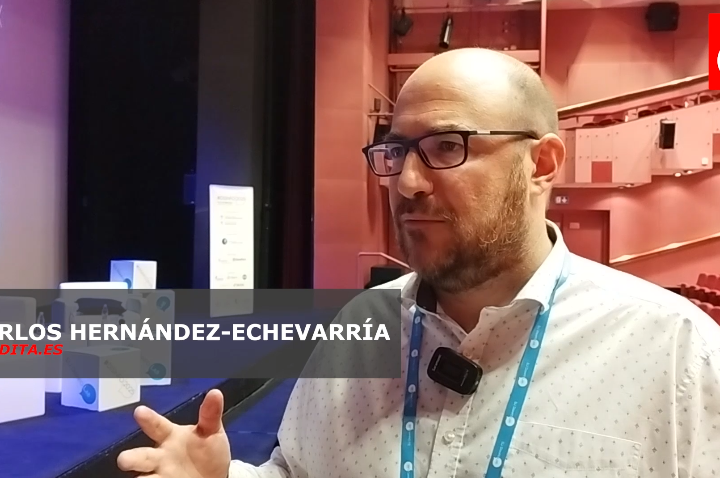 Russia is using disinformation to influence Western democracies
Russia is using disinformation to influence Western democracies  “Disinformation is becoming more sophisticated,” Alexandre Alaphilippe talks about global challenges and the role of AI
“Disinformation is becoming more sophisticated,” Alexandre Alaphilippe talks about global challenges and the role of AI 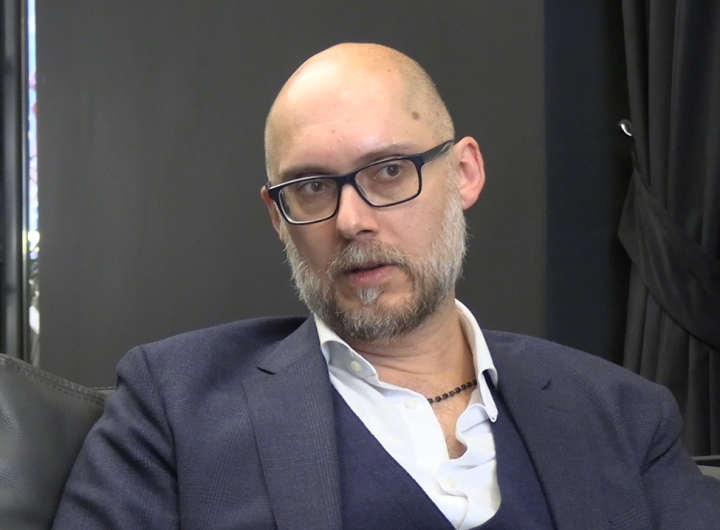 Paolo Palumbo: Russia is strengthening disinformation campaigns through artificial intelligence
Paolo Palumbo: Russia is strengthening disinformation campaigns through artificial intelligence 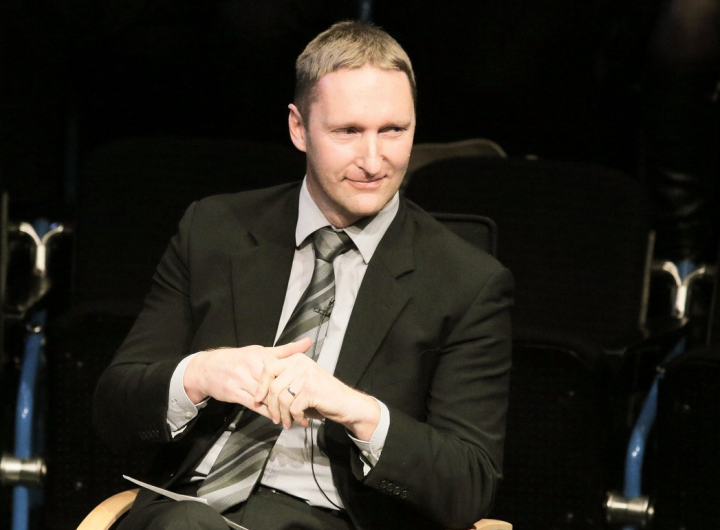 Professor Iztok Prezelj: Balkans influenced by external powers, Serbia serves as an entry point for Russia
Professor Iztok Prezelj: Balkans influenced by external powers, Serbia serves as an entry point for Russia 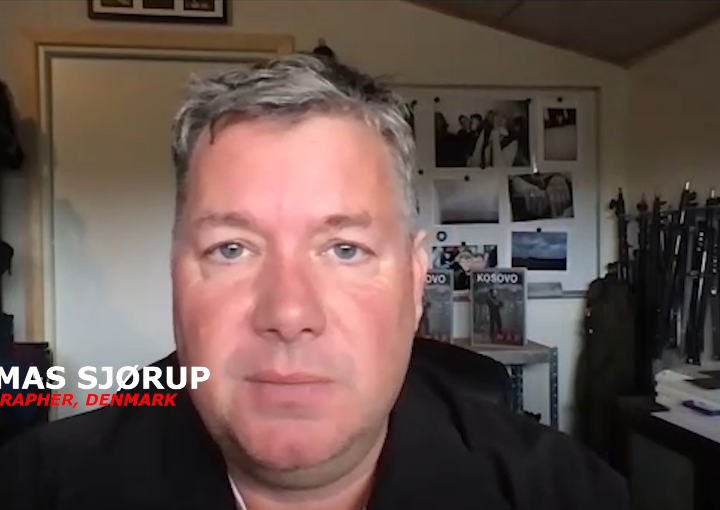 Kosovo through the lens, interview with the photojournalist of 1999
Kosovo through the lens, interview with the photojournalist of 1999 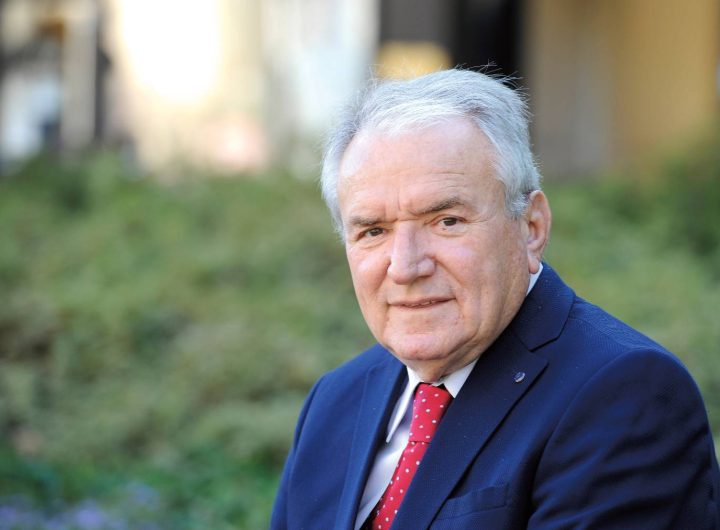 Djukic for The Geopost: There is a civil war in Serbia, the final outcome will be known in a few weeks
Djukic for The Geopost: There is a civil war in Serbia, the final outcome will be known in a few weeks